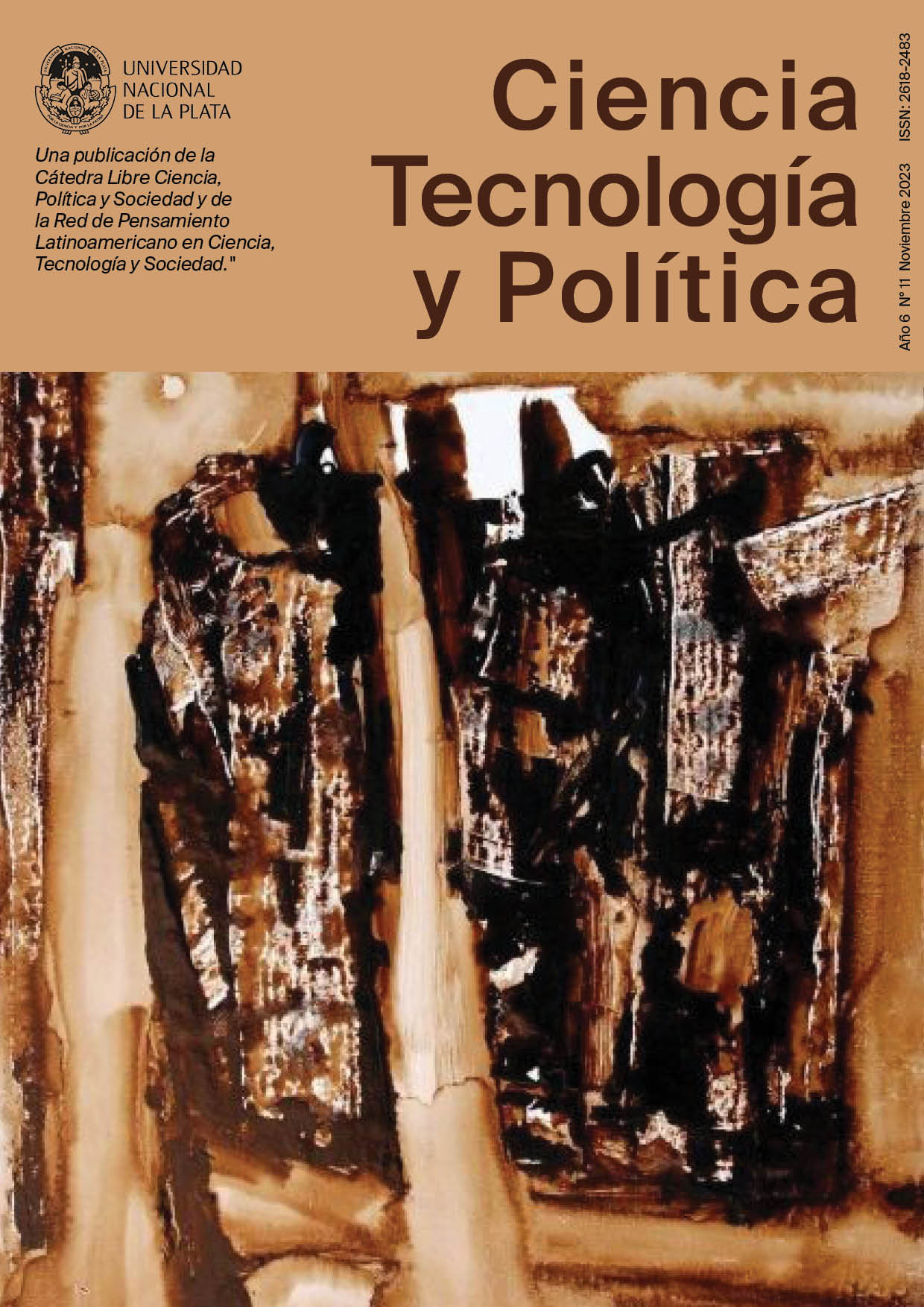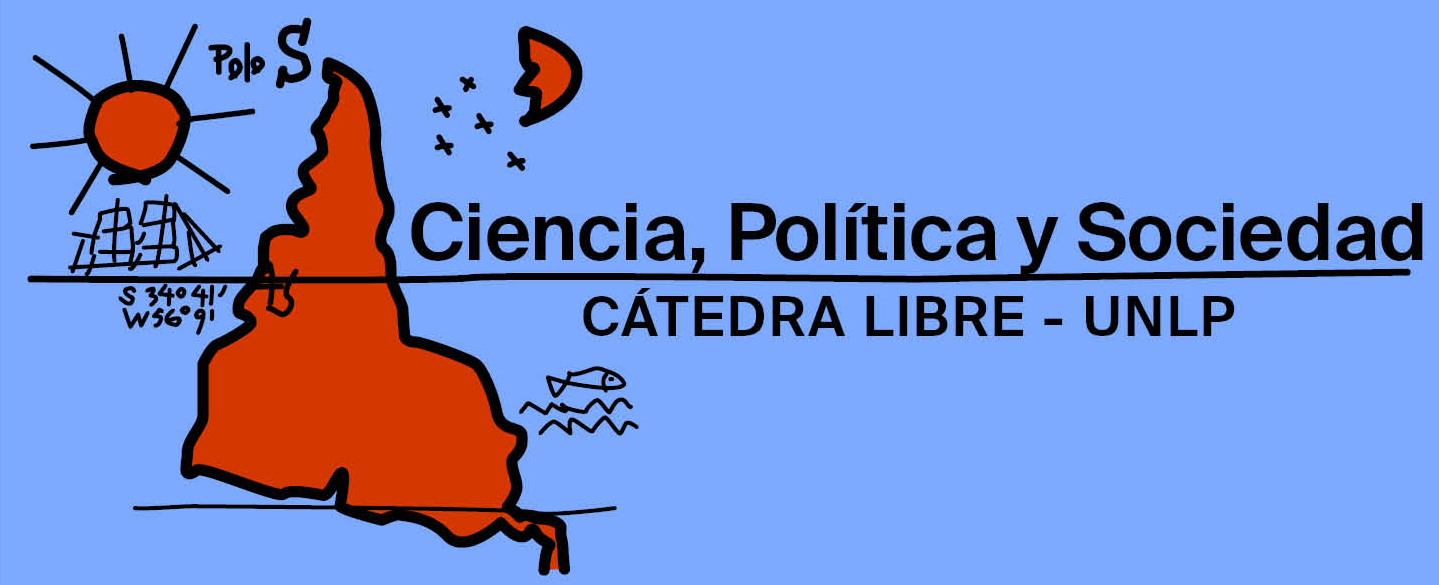The promotion of 4.0 technologies for Small and Medium Enterprises in Argentina
DOI:
https://doi.org/10.24215/26183188e103Keywords:
industry 4.0, technology centers, public policiesAbstract
The adoption of new 4.0 technologies -artificial intelligence, Big Data, cloud computing, Internet of Things, advanced robotics, among others- is radically transforming the productive systems of central countries. However, the scope of the diffusion of these technologies in peripheral countries such as Argentina is not homogeneous. Their impact on Small and Medium Enterprises (SMEs) is characterized by a scarce knowledge of the new technologies, insufficient financial resources to adopt them, and a low availability of skilled labor force. This paper analyzes the main national and provincial policies oriented to the diffusion of 4.0 technologies, particularly those focused on the promotion of intermediate organizations oriented to SMEs, such as Technology Centers (TC).
Downloads
Metrics
References
Albrieu, R., Brest López, C., Raptetti, M., Ferraz, J. C., Nogueira de Paiva Britto, J., Kupfer, D. y Torracca, J. (2019). The Adoption of Digital Technologies in Developing Countries: Insights from Firm level surveys in Argentina and Brazil. United Nations Industrial Development Organization.
Aristimuño, F. J. y Lugones, M. J. (2019). El BID y las políticas de Ciencia, Tecnología e Innovación en Argentina (1990-2015). Ciencia, Tecnología y Política, 2(3), 031. https://doi.org/10.24215/26183188e031
Basco, A. I., Beliz, G., Coatz, D. y Garnero, P. (2018). Industria 4.0: fabricando el futuro. Banco Interamericano de Desarrollo. http://dx.doi.org/10.18235/0001229
Bellini, N. (2008). Business Support Services: A Conceptual Framework and Some Interesting Practices. En M. D. Parrilli, P. Bianchi y R. Sudgen (Eds.), High Technology, Productivity and Networks. A Systemic Approach to SME Development (pp.95-116), Palgrave Macmillan.
Brynjolfsson, E. y McAfee, A. (2014). The second machine age: Work, progress, and prosperity in a time of brilliant technologies. WW Norton & Company.
Burt, R. S. (2002). The social capital of structural holes. En M. F. Guillén, R. Collins, P. England y M. Meyer (Eds.), The New Economic Sociology: Developments in an Emerging Field (pp.148-190). Russell Sage Foundation.
Comisión Económica para América Latina y el Caribe (2018). La Unión Europea y América Latina y el Caribe: Estrategias convergentes y sostenibles ante la coyuntura global (LC/TS.2018/56/Rev.1). CEPAL. https://hdl.handle.net/11362/43740
Cimoli, M. (Ed.) (2005). Heterogeneidad estructural, asimetrías tecnológicas y crecimiento en América Latina. CEPAL. https://hdl.handle.net/11362/2799
Dini, M. y Tassinari, M. (2017). Modelos de gestión de centros tecnológicos sectoriales: elementos de un análisis comparado. CEPAL. https://hdl.handle.net/11362/41740
Dini, M., Gligo, N. y Patiño, A. (2021). Transformación digital de las Mipymes: elementos para el diseño de políticas (LC/TS.2021/99). CEPAL. https://hdl.handle.net/11362/47183
Erbes, A., Gutman, G., Lavarello, P. y Robert, V. (2019). Industria 4.0: oportunidades y desafíos para el desarrollo productivo de la provincia de Santa Fe (LC/TS.2019/80). CEPAL. https://hdl.handle.net/11362/44954
Feldman, P. (2021). Políticas públicas para la promoción de la Industria 4.0 en Argentina: obstáculos, desafíos y factores que condicionan su desarrollo. En M. Versino y P. Elinbaum (Eds.), Actas 1º Jornadas CEUR 60 Aniversario. Tecnología y Territorio: paradigmas tecno-económicos y nuevas configuraciones socio-espaciales en América Latina (pp.332-343). CONICET.
Gutman, G., Gorenstein, S. y Robert, V. (Coords.) (2018). Territorios y nuevas tecnologías. Desafíos y oportunidades en Argentina. PuntoLibro.
Liao, Y., Loures, E. R., Deschamps, F., Brezinski, G. y Venâncio, A. (2018). The impact of the fourth industrial revolution: a cross-country/region comparison. Production, 28, e20180061. https://doi.org/10.1590/0103-6513.20180061
Organización de las Naciones Unidas para el Desarrollo Industrial (2019). Informe sobre el Desarrollo Industrial 2020. La industrialización en la era digital. ONUDI.
Stezano, F. (2018). The role of technology centers as intermediary organizations facilitating links for innovation: Four cases of federal technology centers in Mexico. Review of Policy Research, 35(4), 642-666. https://doi.org/10.1111/ropr.12293
Published
How to Cite
Issue
Section
License
Copyright (c) 2023 Mariana Versino, Luciana Guido, Silvia Gorenstein, Regina Vidosa

This work is licensed under a Creative Commons Attribution-NonCommercial-ShareAlike 4.0 International License.
The authors whose texts are published in this Journal surrender their ownership rights in favour of the editor in a non exclusive manner, i.e. the authors can enter into other independent and additional contracts to publish their text, e.g. including it in an institutional repository, thematic or otherwise, publish it in a book, or others, as long as it is overtly stated that the work was first published in this Journal.
The responsibility for each published paper as regards its content relies exclusively on its authors, holding the editors harmless for any legal liabilities.
The texts of the Journal shall be published under the Creative Commons 4.0 BY-NC-SA license. Therefore, the editors are free to:
1) Share, copy and redistribute the material using any means or format.
2) Adapt, remix, transform and create from the material, under the following conditions:
a) Attribution — credit to this work must be given in an appropriate manner, providing a link to the license and indicating if changes have been made.
b) Non-Commercial Use — no use may be made of the published material for commercial purposes.
c) Share Equal — Authors remixing, transforming or creating from the material must distribute their contribution under the same license as the original.




































